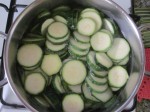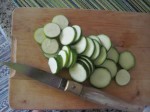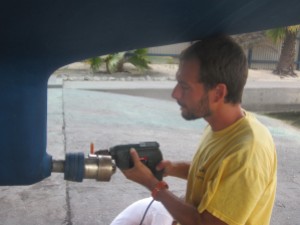Zucchini in olive oil
This is a special recipe that comes directly from my grandmother. She never suspected it’s a perfect solution for long sailing trips (or a really posh appetizer) as she’d never known anything about boating as she lived half of her life in the countryside and the restant part in a big city. This tasty and practical recipe requires you one day of preparation (most waiting so don’t worry!!) but will give you ready made food that could last for many months of sailing, depending on hunger and voracity. Try to find biological and fresh zucchini, the quality of ingredients is fundamental!
Ingredients for 2 glass jars:
5 small and green zucchini2 glass of water
1 glass of white vinegar1 spoon saltgarlic (to taste, I have put 3 cloves)
oregano
extra virgin olive oil
Procedure:
Wash the zucchini, cut into thin slices not too large as equal size as possible. Prepare a pot with 2 glass of water, 1 of white vinegar and a spoon of salt and bring it to boil. Add the zucchini and boil them for about 6 minutes, stirring with a wooden spoon. Drain and leave them dry on a clean rag for a minimum of six hourg, taking care not to overlap. After this time, put the zucchini in the jar previously sterilized making layers with a spoon. For each layer add some garlic slices and a pinch of oregano. Cover well with the extra virgin olive oil, press it with a spoon to eliminate air bubbles (the oil will penetrate everywhere, leaving no spaces), if necessary top up with more oil, and close with the cap sealed. Wait a minimum of 1 week before eating.













